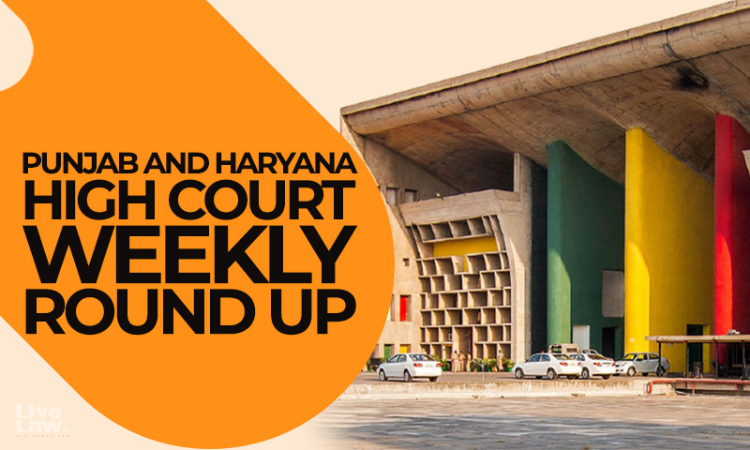Punjab & Haryana High Court Weekly Round Up: June 6 To June 12, 2022
Drishti Yadav
13 Jun 2022 10:00 AM IST

Next Story
13 Jun 2022 10:00 AM IST
Nominal Index1.Jaswinder Singh @ Jass VERSUS State of Punjab 2022 LiveLaw (PH) 135 2.Ghanso @ Kalo v. State of Punjab 2022 LiveLaw (PH) 136 3.Rohit @ Mirchi Versus State of Haryana 2022 LiveLaw (PH) 137 4.Kanta Devi and Others versus Paripuran Singh and Others 2022 LiveLaw (PH) 138 5.Phool Singh and Another versus Amit Kumar and Others 2022 LiveLaw (PH) 1396.Rajnandini Metal Ltd. Versus...
